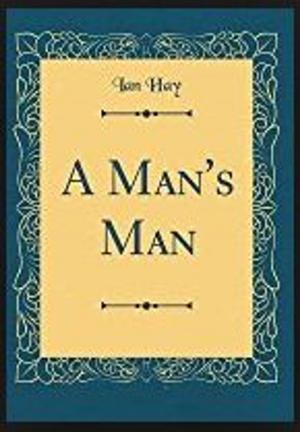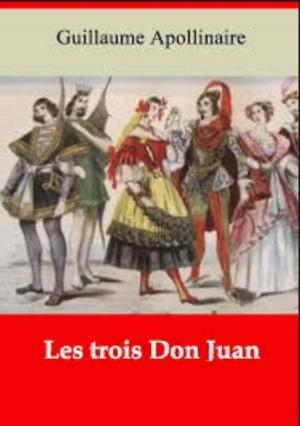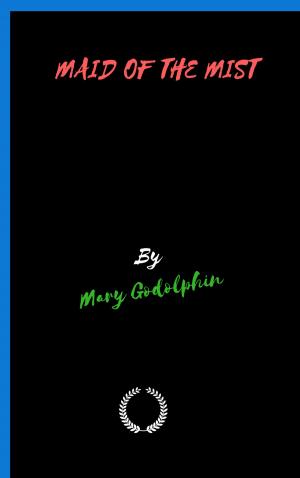| Author: | Harold Frederic | ISBN: | 1230002312811 |
| Publisher: | Jwarlal | Publication: | May 9, 2018 |
| Imprint: | Language: | English |
| Author: | Harold Frederic |
| ISBN: | 1230002312811 |
| Publisher: | Jwarlal |
| Publication: | May 9, 2018 |
| Imprint: | |
| Language: | English |
to stay.”
“Well, let ’em flare, says I. ’Taint none o’ aour business, Alviry.”
“I knaow, Milton; but still it seems to me she might wait at least till th’ corpse was aout o’ th’ haouse.”
“What’s thet got to dew with it?”
The callousness of the question must have grated upon the hired-girl, for she made no reply, and slapped the dough over on the board with an impatient gesture.
It was near the close of a fair day, late in May, and the reddened sunlight from the West would have helped to glorify any human being less hopelessly commonplace than Milton Squires as he sat in its full radiance on the doorstep, peeling and quartering apples over a pan which he held between his knees. This sunlight, to reach him, painted with warm tints many objects near at hand which it could not make picturesque. The three great barns, standing in the shadow to the south, were ricketty and ancient without being comely, and the glare only made their awkward outlines and patched, paintless surfaces the meaner; the score of lean cows, standing idly fetlock-deep in the black mire of the barnyard, or nipping the scant tufts of rank grass near the trough, seemed all the dingier and scrawnier for the brilliancy of the light which covered them; the broken gate, the bars eked out with a hop-pole, the wheelbarrow turned shiftlessly against a break in the wall, the mildewed wellcurb, with its antiquated reach—all seemed in this glow of dying day to be conscious of exhibiting at its worse their squalid side. The sunset could not well have illumined, during that hour at least, a less inspiring scene than this which Alvira, looking out as she talked, or the hired man, raising his head from over the apples, could see from the kitchen door of Lemuel Fairchild’s farm-house. But any student of his species would have agreed that, in all the uninviting view, Milton was the least attractive object.
As he rose to empty his pan within, and start afresh, he could be seen more fully. He was clumsily cased from neck to ankles in brown over-alls, threadbare, discolored, patched, with mud about the knees and ragged edges lower down. He wore rubber boots, over the bulging legs of which the trousers came reluctantly, and the huge feet of these were slit down the instep. His hat had been soft and black once; now it seemed stiffened with dirt, to which the afternoon milking had lent a new contribution of short reddish hair, and was shapeless and colorless from age. His back was narrow and bent, and his long arms terminated in hands which it seemed sinful to have touch anything thereafter to be eaten. Viewed from behind, Milton appeared to be at least fifty. But his face showed a somewhat younger man, despite its sun-baked lines and the frowzy beard which might be either the yellow of unkempt youth or the gray of untidy age. In reality he was not yet thirty-six.
He slouched out now with a fresh lot of apples, and, squatting on the door-stone, resumed the conversation.
“I s’pose naow Sissly’s gone, ther’ won’t be no livin’ under th’ same roof with Sabriny fer any of us. Ther’ ain’t nobuddy lef’ fer her to rassle with ’cep’ us. Ole Lemuel’s so broken-up, he won’t dare say his soul’s his own; ’n John—well, Lize Wilkins says she heerd him say he didn’t know’s he’d come to th’ funer’l ’t all, after th’ way him ’n’ Sabriny hed it aout las’ time he was here.”
“I wasn’t talkin’ o’ them!” said Alvira, slapping the flour from her hands’ and beginning with the roller; “it’d be nothin’ new, her tryin’ to boss them. But she’s got her dander up naow agin somebuddy that beats them all holler. They won’t no Richardsons come puttin’ on airs ’raoun’ here, an’ takin’ th’ parlor bedroom ’thaout askin’, not ef th’ ole lady knaows herself—’n’ I guess she does.”
“What Richardsons?” asked Milton. “Thought Sissly was th’ last of ’em—thet they wa’n’t no more Richardsons.”
“Why, man alive, ain’t Albert’s wife a Richardson, th’ daughter of Sissly’s cousin—you remember, that pock-pitted man who kep’ th’ fast hoss here one summer. Of course she’s a Richardson—full-blooded! When she come up from th’ train here this mornin’, with Albert, I see by th’ ole lady’s eye ’t she meant misch’f. I didn’t want to see no raow, here with a corpse in th’ haouse, ’n’ so I tried to smooth matters over, ’n’ kind o’ quiet Sabriny daown, tellin’ her thet they had to come to th’ fu-ner’l, ’n’ they’d go ’way soon’s it was through with, ’n’ that Albert, bein’ the oldest son, hed a right to th’ comp’ny bed-room.”
“’N’ what’d she say?”
“She didn’t say much, ’cep’ thet th’ Richardsons hed never brung nothin’ but bad luck to this haouse, ’n’ they never would, nuther. ’N’ then she flaounced upstairs to her room, jis’s she allus does when she’s riled, ’n’ she give Albert’s wife sech a look, I said to m’self, ‘Milady, I wouldn’t be in your shoes fer all yer fine fixin’s.’”
“Well, she’s a dum likely lookin’ woman, ef she is a Richardson,” said Milton, with something like enthusiasm. “Wonder ef she wears one o’ them low-necked gaowns when she’s to hum, like th’ picters in th’ Ledger. They say they all dew, in New York.”
“Haow sh’d I knaow!” Alvira sharply responded. “I got enough things to think of, ’thaout both’rin’ my head abaout city women’s dresses. ’N’ you ought to hev, tew. Ef you’n’ Leander’d pay more heed to yer work, ’n’ dew yer chores up ship-shape, ’n’ spen’ less time porin’ over them good-fer-nothin’ story-papers, th’ farm wouldn’t look so run-daown ’n’ slaouchy. Did yeh hear what Albert said this mornin’, when he looked ’raoun’? ‘I swan! ’ he said, ‘I b’lieve this is th’ seediest lookin’ place ’n all Northern New York.’ Nice thing fer him to hev to say, wa’n’t it!”
to stay.”
“Well, let ’em flare, says I. ’Taint none o’ aour business, Alviry.”
“I knaow, Milton; but still it seems to me she might wait at least till th’ corpse was aout o’ th’ haouse.”
“What’s thet got to dew with it?”
The callousness of the question must have grated upon the hired-girl, for she made no reply, and slapped the dough over on the board with an impatient gesture.
It was near the close of a fair day, late in May, and the reddened sunlight from the West would have helped to glorify any human being less hopelessly commonplace than Milton Squires as he sat in its full radiance on the doorstep, peeling and quartering apples over a pan which he held between his knees. This sunlight, to reach him, painted with warm tints many objects near at hand which it could not make picturesque. The three great barns, standing in the shadow to the south, were ricketty and ancient without being comely, and the glare only made their awkward outlines and patched, paintless surfaces the meaner; the score of lean cows, standing idly fetlock-deep in the black mire of the barnyard, or nipping the scant tufts of rank grass near the trough, seemed all the dingier and scrawnier for the brilliancy of the light which covered them; the broken gate, the bars eked out with a hop-pole, the wheelbarrow turned shiftlessly against a break in the wall, the mildewed wellcurb, with its antiquated reach—all seemed in this glow of dying day to be conscious of exhibiting at its worse their squalid side. The sunset could not well have illumined, during that hour at least, a less inspiring scene than this which Alvira, looking out as she talked, or the hired man, raising his head from over the apples, could see from the kitchen door of Lemuel Fairchild’s farm-house. But any student of his species would have agreed that, in all the uninviting view, Milton was the least attractive object.
As he rose to empty his pan within, and start afresh, he could be seen more fully. He was clumsily cased from neck to ankles in brown over-alls, threadbare, discolored, patched, with mud about the knees and ragged edges lower down. He wore rubber boots, over the bulging legs of which the trousers came reluctantly, and the huge feet of these were slit down the instep. His hat had been soft and black once; now it seemed stiffened with dirt, to which the afternoon milking had lent a new contribution of short reddish hair, and was shapeless and colorless from age. His back was narrow and bent, and his long arms terminated in hands which it seemed sinful to have touch anything thereafter to be eaten. Viewed from behind, Milton appeared to be at least fifty. But his face showed a somewhat younger man, despite its sun-baked lines and the frowzy beard which might be either the yellow of unkempt youth or the gray of untidy age. In reality he was not yet thirty-six.
He slouched out now with a fresh lot of apples, and, squatting on the door-stone, resumed the conversation.
“I s’pose naow Sissly’s gone, ther’ won’t be no livin’ under th’ same roof with Sabriny fer any of us. Ther’ ain’t nobuddy lef’ fer her to rassle with ’cep’ us. Ole Lemuel’s so broken-up, he won’t dare say his soul’s his own; ’n John—well, Lize Wilkins says she heerd him say he didn’t know’s he’d come to th’ funer’l ’t all, after th’ way him ’n’ Sabriny hed it aout las’ time he was here.”
“I wasn’t talkin’ o’ them!” said Alvira, slapping the flour from her hands’ and beginning with the roller; “it’d be nothin’ new, her tryin’ to boss them. But she’s got her dander up naow agin somebuddy that beats them all holler. They won’t no Richardsons come puttin’ on airs ’raoun’ here, an’ takin’ th’ parlor bedroom ’thaout askin’, not ef th’ ole lady knaows herself—’n’ I guess she does.”
“What Richardsons?” asked Milton. “Thought Sissly was th’ last of ’em—thet they wa’n’t no more Richardsons.”
“Why, man alive, ain’t Albert’s wife a Richardson, th’ daughter of Sissly’s cousin—you remember, that pock-pitted man who kep’ th’ fast hoss here one summer. Of course she’s a Richardson—full-blooded! When she come up from th’ train here this mornin’, with Albert, I see by th’ ole lady’s eye ’t she meant misch’f. I didn’t want to see no raow, here with a corpse in th’ haouse, ’n’ so I tried to smooth matters over, ’n’ kind o’ quiet Sabriny daown, tellin’ her thet they had to come to th’ fu-ner’l, ’n’ they’d go ’way soon’s it was through with, ’n’ that Albert, bein’ the oldest son, hed a right to th’ comp’ny bed-room.”
“’N’ what’d she say?”
“She didn’t say much, ’cep’ thet th’ Richardsons hed never brung nothin’ but bad luck to this haouse, ’n’ they never would, nuther. ’N’ then she flaounced upstairs to her room, jis’s she allus does when she’s riled, ’n’ she give Albert’s wife sech a look, I said to m’self, ‘Milady, I wouldn’t be in your shoes fer all yer fine fixin’s.’”
“Well, she’s a dum likely lookin’ woman, ef she is a Richardson,” said Milton, with something like enthusiasm. “Wonder ef she wears one o’ them low-necked gaowns when she’s to hum, like th’ picters in th’ Ledger. They say they all dew, in New York.”
“Haow sh’d I knaow!” Alvira sharply responded. “I got enough things to think of, ’thaout both’rin’ my head abaout city women’s dresses. ’N’ you ought to hev, tew. Ef you’n’ Leander’d pay more heed to yer work, ’n’ dew yer chores up ship-shape, ’n’ spen’ less time porin’ over them good-fer-nothin’ story-papers, th’ farm wouldn’t look so run-daown ’n’ slaouchy. Did yeh hear what Albert said this mornin’, when he looked ’raoun’? ‘I swan! ’ he said, ‘I b’lieve this is th’ seediest lookin’ place ’n all Northern New York.’ Nice thing fer him to hev to say, wa’n’t it!”















